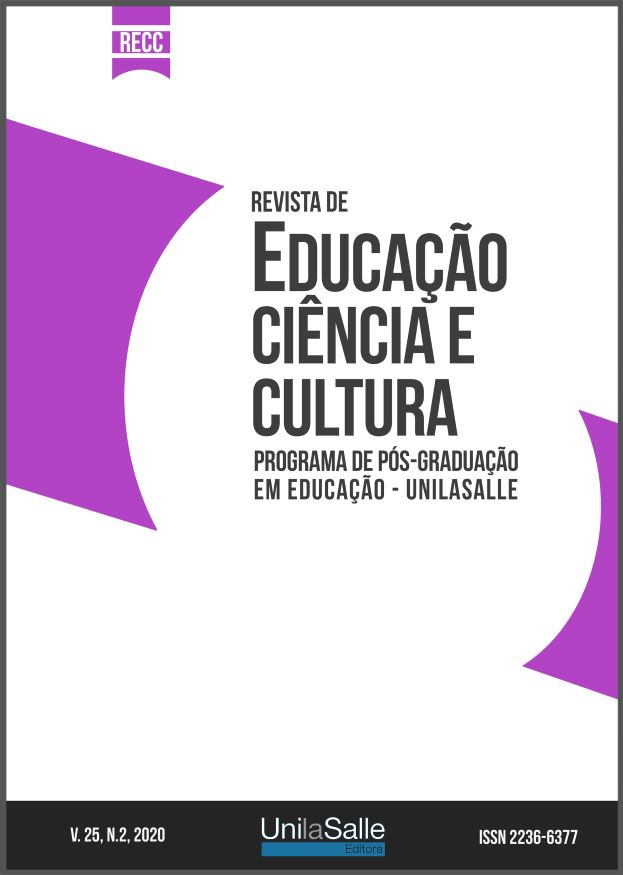“Será que eu deveria estar neste curso?”: sobre estudantes de escolas públicas em cursos de alta seletividade social
DOI:
https://doi.org/10.18316/recc.v25i2.6600Palavras-chave:
Estudantes, Escolas Públicas, Universidade Pública, Alta Seletividade Social, Permanência.Resumo
O artigo objetiva compreender criticamente aspectos da trajetória familiar e escolar de estudantes de escolas públicas aprovados em cursos de alta seletividade social em universidade pública, tratando, principalmente, da ‘luta’ pela permanência na educação superior. O estudo, de natureza exploratória e descritiva, ao partir das ideias de Bourdieu, da noção de “fronteiras sociais” de Lamon e Molnár (2002), do estudo de caso (TRIVINÕS, 1987) e das entrevistas com estudantes de Medicina e Direito, concluiu: a permanência dos estudantes cotistas na educação superior é um continuum do que foi a luta pelo acesso; as necessidades cotidianas e acadêmicas dos estudantes vão forjando as suas virtudes morais; os estudantes enfrentam a “violência doce” (BOURDIEU, 2010), às vezes dissimulada ou não, nas fronteiras simbólicas e materiais de distinção social no campo acadêmico, que podem levá-los à autoexclusão. Um sistema público de educação superior não pode ser democrático se se configura em alguns estudantes ‘heróis’, oriundos de escolas públicas, que alcançam êxito na seleção para os cursos de alta seletividade social, quando mobilizados por não duvidar dos próprios sonhos. Entre os tópicos para estudos e pesquisas posteriores estão: as cotas sociais em relação ao processo de participação de estudantes de escolas militares e a convergência ou variações das necessidades e virtudes em estratos das classes médias e classes populares em cursos de alta seletividade social.
Downloads
Publicado
Edição
Seção
Licença
Autores que submetem seus manuscritos para serem publicados nesta revista concordam com os seguintes termos:
Autores mantém os direitos autorais e concedem à revista o direito de primeira publicação, com o trabalho simultaneamente licenciado sob a Licença Creative Commons Attribution que permite o compartilhamento do trabalho com reconhecimento da autoria e publicação inicial nesta revista.
- Em virtude dos artigos aparecerem nesta revista de acesso público, os artigos são de uso gratuito, com atribuições próprias, em aplicações educacionais e não-comerciais.
O Periódico Revista de Educação, Ciência e Cultura em http://www.revistas.unilasalle.edu.br/index.php/Educacao foi licenciada com uma Licença Creative Commons - Atribuição - Uso Não Comercial 3.0 Não Adaptada.


